QuestionI have a 1 year old german shepherd. I think he's sweet and kind. However he is terrified of my husband. He will urinate when he speaks to him in kind way. His ears go back in submission anytime my husband is near him. Now the dog adores my husband but we can't seem to find a way to gain trust with the dog and him. He is kenneled during the day but roams freely in the home and outside when we are home. ANy suggestions???
AnswerMany dogs eventually outgrow it, but you can reduce it by building the dog's confidence up. Start with obedience training. The key to most behavior problems is approaching things using the dog's natural instincts. Dogs see all the people and dogs in the household as a pack with each having their own rank in the pack and a top dog. Life is much easier if the 2 legged pack members outrank the 4 legged ones. You can learn to play the role of top dog by reading some books or going to a good obedience class. A good obedience class or book is about you being top dog, not about rewarding standard commands with a treat. Start at http://www.dogsbestfriend.com/ As you praise the dog for following your commands, it will build its confidence.
Play tug of war with the dog and lose. However at the end of the game, take the rope or toy and put it up, less the dog becomes confused about who is top dog. Ropes from the pets' store quickly turn to hazardous shreds. Ones I made lasted much better. Go to a hardware or home center that sells rope by the foot. Buy 2' of 3/4" poly rope. Melt the ends, and tie knots in it. Get them as tight as possible, put it in a vise and pound it with a hammer. Watch carefully, and be ready to discard when it comes apart.
The crate should help too. Always leave the door open so he knows he can retreat to it if needed. You and I know he won't need to, but he doesn't.
These are meant for younger dogs, but will help if your husband does whathe can now.
''Elevation for small puppies: Sit on the floor and gently put your hands around your pup's middle, below his front legs, and lift him up. He is facing you. Hold him for 15 seconds. Repeat until he no longer struggles. If he is past 10-12 weeks, lift his front feet off the ground, but don't pick him up.
Cradling for small puppies: Hold your puppy gently on his back, as you would cradle a small baby. If he struggles, hold him firmly until he quiets for 10-15 seconds. With larger pups, you can do this as your sit on the floor, with your pup between your legs.
Quiet lying down: Place your pup on the floor on his side, with all 4 legs pointing away from you. Use your hands on his neck/shoulder area and middle, to hold him in this position. When he is quiet, praise him. Lengthen the time that you keep him quietly in this position. When he accepts this position well, handle his paws and muzzle, while keeping him quiet.''
The quotes mean this isn't my original work. It is copied from my Puppy Raising Manual. I have long used these or minor variations of them, and they are very effective. You may want to give him a belly rub while he is on his back too. Helps bonding. There is a big difference between him rolling over and demanding a belly rub, and you choosing a time to roll him over and rub his belly. The latter cements your place as pack leader.

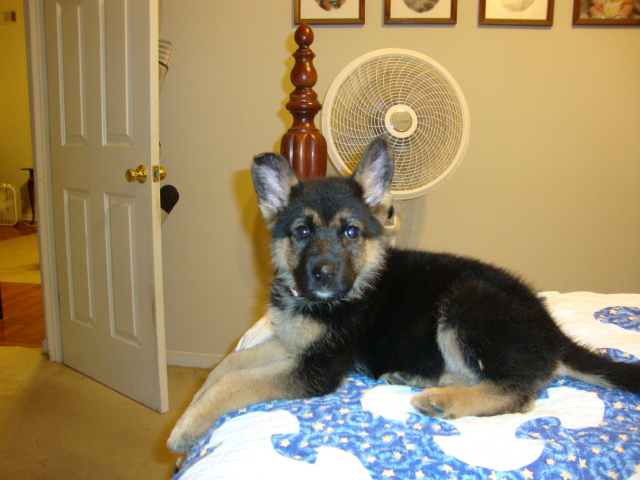 puppy wont eat
Question
ava 8weeksweeks
i have a purebred german sheph
puppy wont eat
Question
ava 8weeksweeks
i have a purebred german sheph
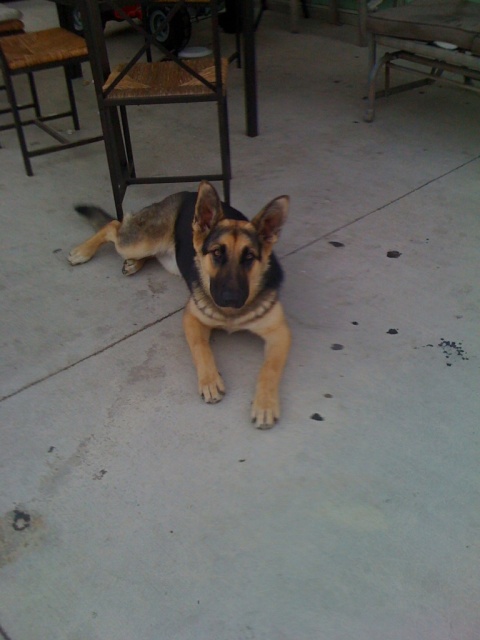 6 month pup
Question6 month old female
QUESTION: I was offer
6 month pup
Question6 month old female
QUESTION: I was offer
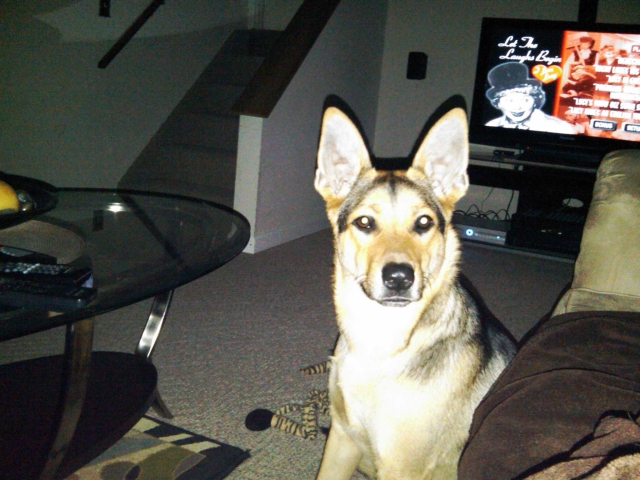 My German Shepherd Acts Scared
Question
Mannie
I have a male 1/2 German Shepherd 1/2 H
My German Shepherd Acts Scared
Question
Mannie
I have a male 1/2 German Shepherd 1/2 H
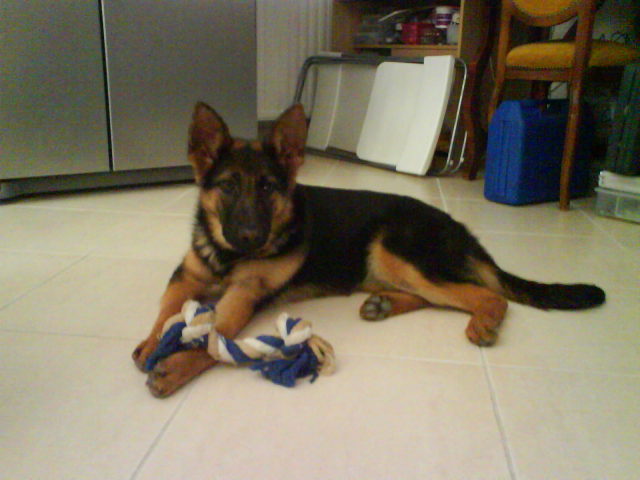 poor growth because bad nutrition
Question
7 month
I bought a female gsd when she was 7 m
poor growth because bad nutrition
Question
7 month
I bought a female gsd when she was 7 m
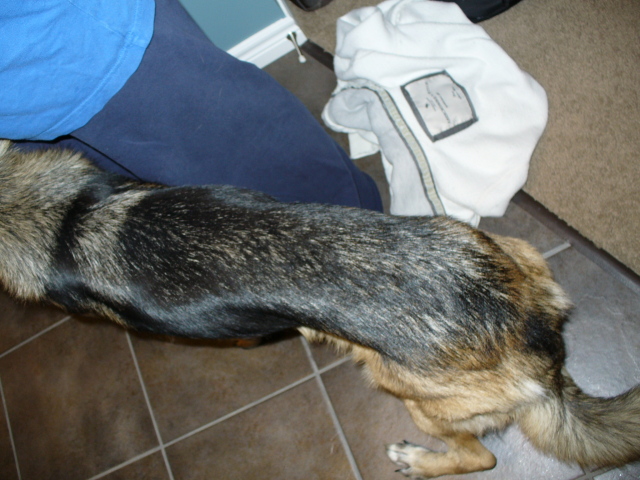 Very thin German Shepherd
Question
Sadie
Hi
We are having problems getting our
Very thin German Shepherd
Question
Sadie
Hi
We are having problems getting our